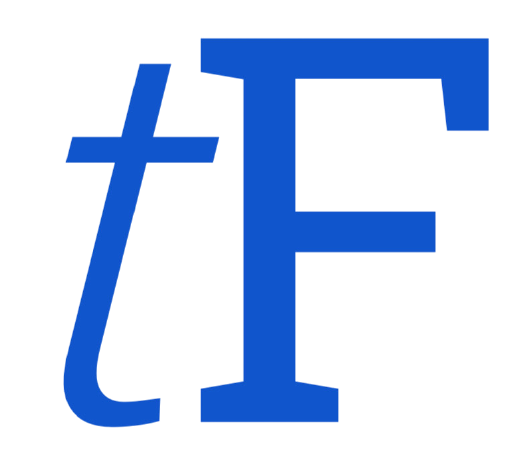Beginning in March 2025, President Donald Trump launched a wave of executive actions aimed at restricting the operations of several major law firms, both domestic and international. According to Business Insider, Trump justified the move by claiming that many of these firms were “weaponizing the judicial system.”
Trump’s focus has largely been on firms he perceives as having previously wronged him. Among them are individuals like Andrew Weissmann, a lawyer at Jenner & Block who investigated Trump’s ties to Russia, and law firms such as Perkins Coie, which represented Hillary Clinton during her 2016 presidential campaign. Trump has also targeted firms that promote diversity, equity, and inclusion in hiring practices.
In a presidential memorandum issued on March 22, titled “Preventing Abuses of the Legal System and the Federal Court,” Trump gave the Departments of Justice and Homeland Security authority to “seek sanctions against attorneys and law firms who engage in frivolous, unreasonable and vexatious litigation against the United States,” as stated by the official White House website.
So far, 14 firms have been directly affected by these measures, though more may follow as the administration continues identifying firms it sees as oppositional. Attorney General Pam Bondi has been tasked with identifying additional law firms with pending or past cases against the administration that could fall under the scope of these orders.
The March 22 memo also discusses issues of immigration and what it describes as unethical conduct by certain law firms. It references Elias Law Group and its alleged role in a supposedly fabricated “dossier” by a foreign national, an effort the memo claims was designed to create a false basis for federal law enforcement to investigate a presidential candidate and influence the election’s outcome.
This campaign is not new for Trump, who has long voiced frustration with what he calls “lawfare” from lawyers aligned with the political left. He argues these lawsuits are driven by partisanship and constitute an abuse of the legal system. Trump has stated that his goal is to correct what he views as systemic bias and restore neutrality to the judiciary.
Several prominent law firms have found themselves in the administration’s crosshairs. These include Paul Weiss, Covington & Burling, WilmerHale, Perkins Coie, and Elias Law Group. Business Insider reports that nine of these firms have reached agreements with the administration. As part of those deals, the firms have committed nearly $1 billion in pro bono services in exchange for maintaining access to federal buildings and avoiding deeper scrutiny into their hiring practices.
During Trump’s first term, WilmerHale employed Robert Mueller, who served as special counsel in the Trump-Russia investigation, noted in a report by Axios. Trump issued an executive order against WilmerHale on March 27, 2025, citing its ties to Mueller. However, a federal judge blocked the order on May 28, stating that it “must be struck down in its entirety as unconstitutional,” as reported by CBS.
The executive orders issued by Trump include sweeping measures. These range from revoking federal security clearances to canceling government contracts, restricting access to federal buildings, and even limiting communication between firm employees and federal workers.
“For litigating, which is the type of work I do, if the government has a ban on entering federal buildings, it makes it virtually impossible to do your job. This has put lawyers at these firms in a difficult position because clients are concerned,” says John Bennett, a partner at A&O Shearman. The firm is among the nine that settled with the Trump administration. A&O Shearman also agreed to engage outside counsel to monitor its hiring practices. As a result, the Equal Employment Opportunity Commission’s investigation into the firm has ceased, Business Insider reports.
Bennett, who works in the firm’s Boston office, says reactions within the firm are mixed: “In my office, most people aren’t happy about what is going on, but there are also people who feel it was a wise thing to do. Not everyone has the same point of view.”
Some legal experts argue that the deals these firms are making are not voluntary. “The problem with the law firm deals is … they’re not deals at all. You know, a contract that you make with a gun to your head is not a contract,” says Harold Hongju Koh, professor and former dean of Yale Law School. Many lawyers feel cornered: either fight back and risk losing clients and resources, or comply and face criticism for failing to stand up for legal independence. For many, it’s a lose-lose situation.
Although most firms have chosen to comply, a few have taken Trump to court. So far, he has lost all three legal challenges filed by firms that decided to fight the orders. A fourth case is pending. “The initial victories these firms have obtained will be appealed, so there are still additional developments that people should pay attention to,” Bennett warns.
The broader implications of these executive actions are raising alarms throughout the legal community. Critics argue that the orders threaten constitutional rights, including free speech and due process.
CBS reports that Donald Ayer, a professor at Georgetown Law, believes Trump’s executive orders violate the rights to free speech, due process, and legal representation. Many in the legal profession agree. They say these actions undermine a foundational principle of the U.S. legal system: that every person deserves representation, regardless of how controversial their case may be.
Lawyers are tasked with defending the rights of all citizens. Their role is not to pick sides, but to ensure the justice system remains fair and impartial. As firms face pressure from the executive branch, many fear that America is straying from these ideals.
For the legal profession, the battle is not just about politics–it’s about preserving the independence of the judiciary and the core values of the rule of law.



